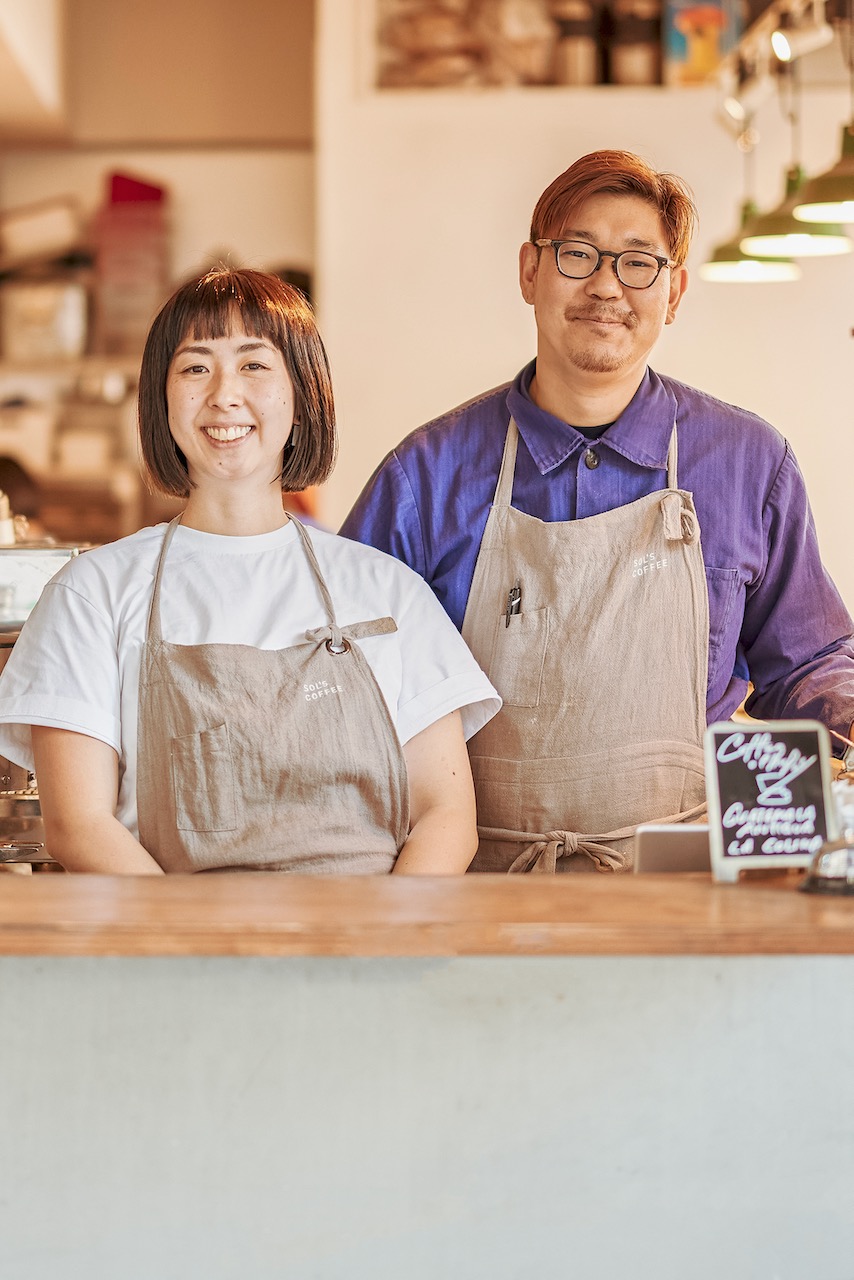
Coffee-fueled Pursuit of Serendipity
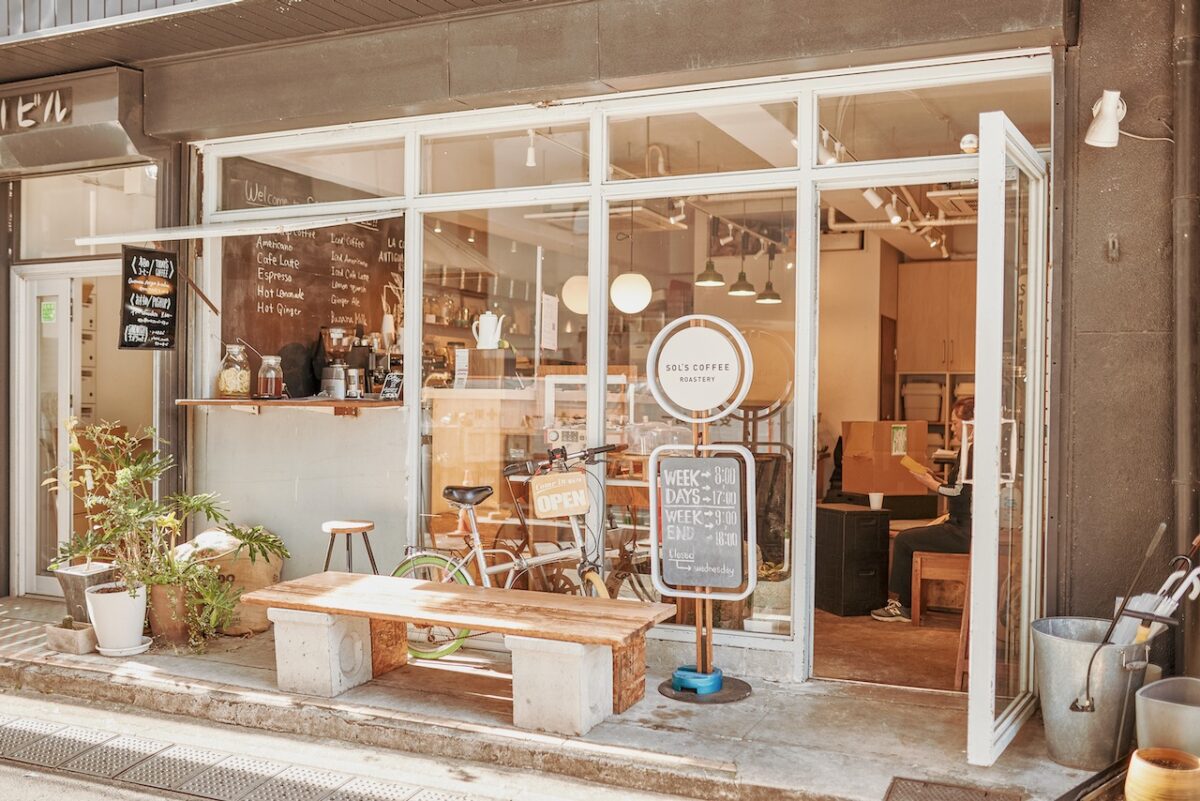
SOL’S COFFEE operates three specialty coffee shops in Tokyo’s low-lying shitamachi districts, including Kuramae and Asakusa-bashi, and a research and development base called LABORATORY in the town of Wakasa, Fukui Prefecture. Its representative Rieko Arai founded SOL’S COFFEE with her friend in 2009, when she was 22 years old. Sho Nakajima, then Arai’s yet-to-be husband, joined as store manager in 2017. In our interview, the couple shared SOL’S COFFEE’s philosophy – nurtured and established over time – and their dream arising from it.
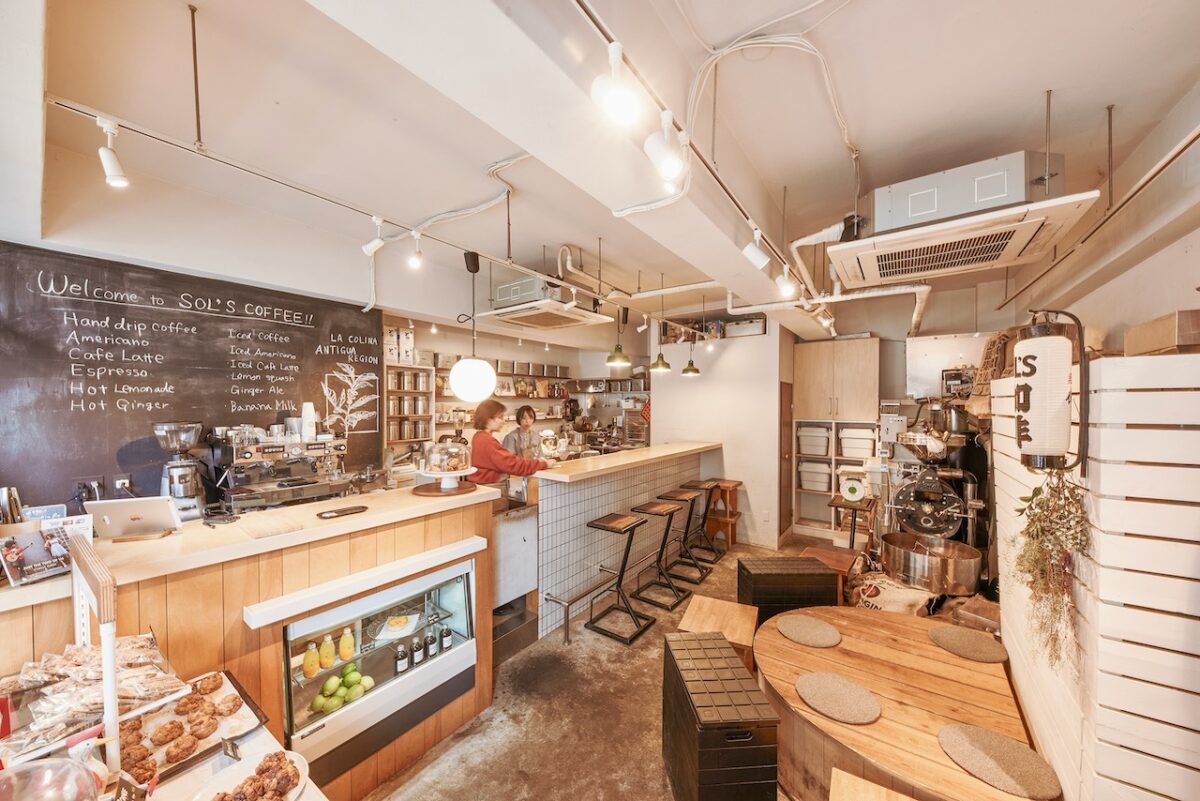
Introducing people to coffee
A stroll along the street from Asakusa-bashi Station to Kuramae takes you past office buildings and retro shops. Cast a glance across a large intersection into an alley, and you will find SOL’S COFFEE ROASTERY, its unassuming storefront perfectly blending in with the streetscape.
As I step in through the door, the aromas of coffee and freshly baked scone waft into my nostrils at once. At the back of the store sits a roaster, and staff briskly move around in the kitchen. The bustle of activity is punctuated by light music, running through a playlist assembled by Nakajima, who moonlights as a musician. Customers, rather than nestling into the comfort of their seats for a leisurely break, swing by for a brief moment of peace.
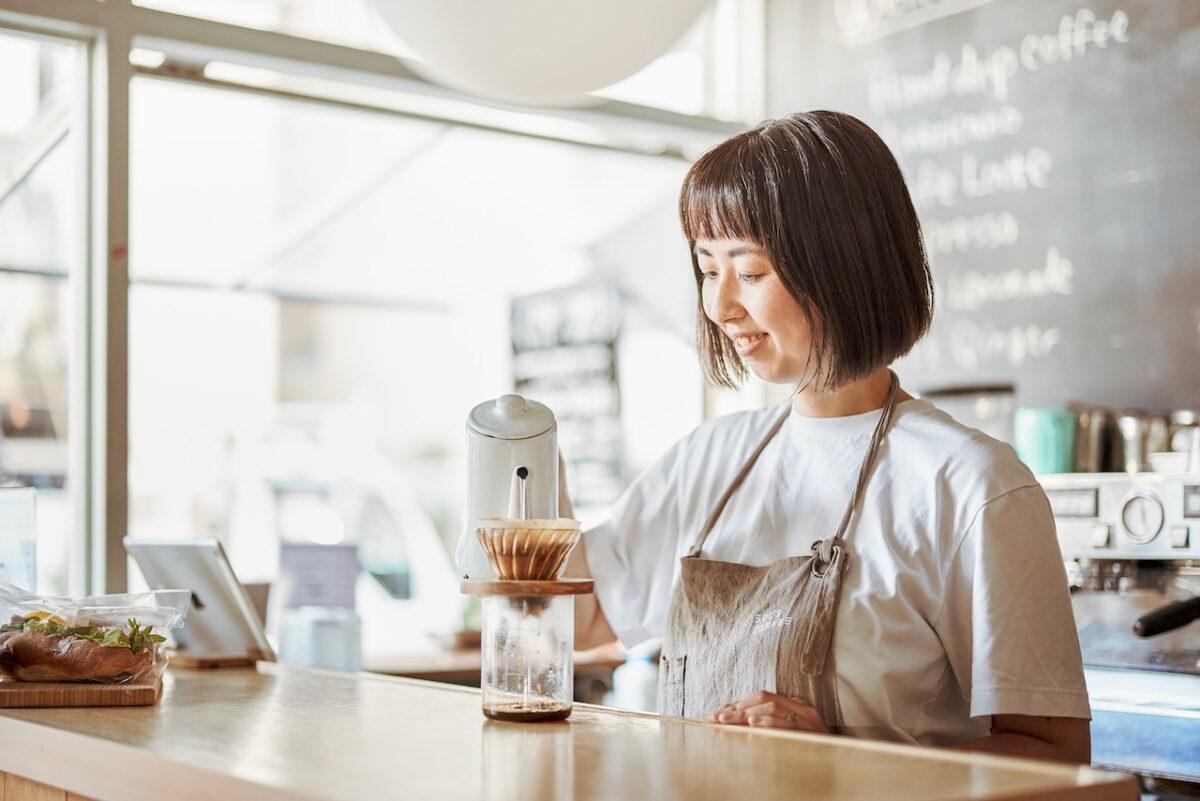
Though Arai now drinks many cups of coffee every day, she had never had a delicious cup until just before she opened SOL’S COFFEE. But by a strange quirk of fate, her life and coffee had intersected more than once. When Arai was 14, she visited her cousin in hospital in Australia after the cousin was injured in a traffic accident. Arai had her first encounter with the country’s coffee culture during her stay.
“A friend of my cousin went to a coffee shop every day. I was really attracted by the sight of people going about their day as they liked. I felt that spending time at a coffee shop was deeply ingrained in the lives of people in the city. I was also surprised when my cousin’s friend told me she drank coffee for her health, for medicine.”
“For medicine.” These two words left a strong impression on Arai, especially since she had always thought coffee was bad for health.
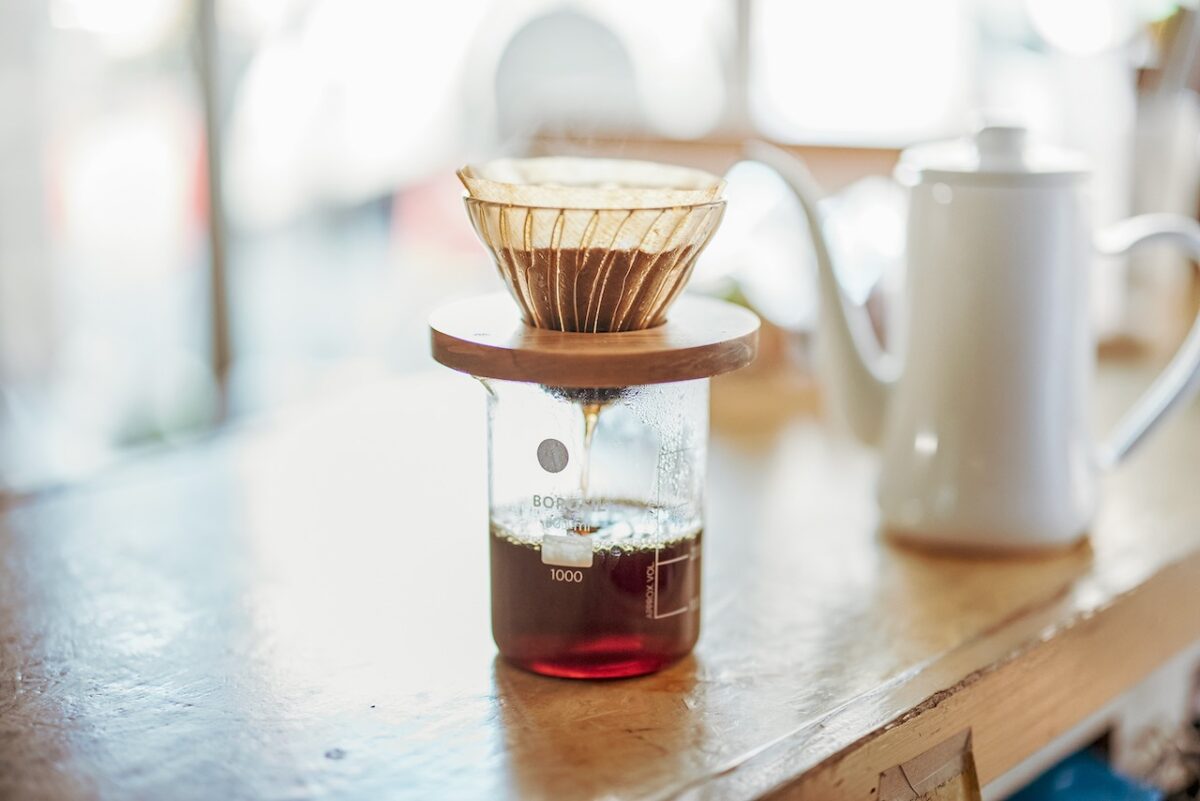
When Arai was in high school, she started a part-time job at a major coffee chain for the sole reason that her tutor she was fond of often studied at the shop. Working there didn’t help Arai find delicious coffee. But she liked the shop’s atmosphere and enjoyed working as a barista. So when her friend was planning to open a coffee shop, Arai casually decided to help. Her idea about coffee, however, was turned upside down, when she tasted a coffee the friend’s father had been studying.
“That was shockingly delicious. I decided right then and there to let everyone know how delicious coffee was and to make a living out of it. My shops have always specialized in coffee because my initial motivation was to introduce people to coffee.”
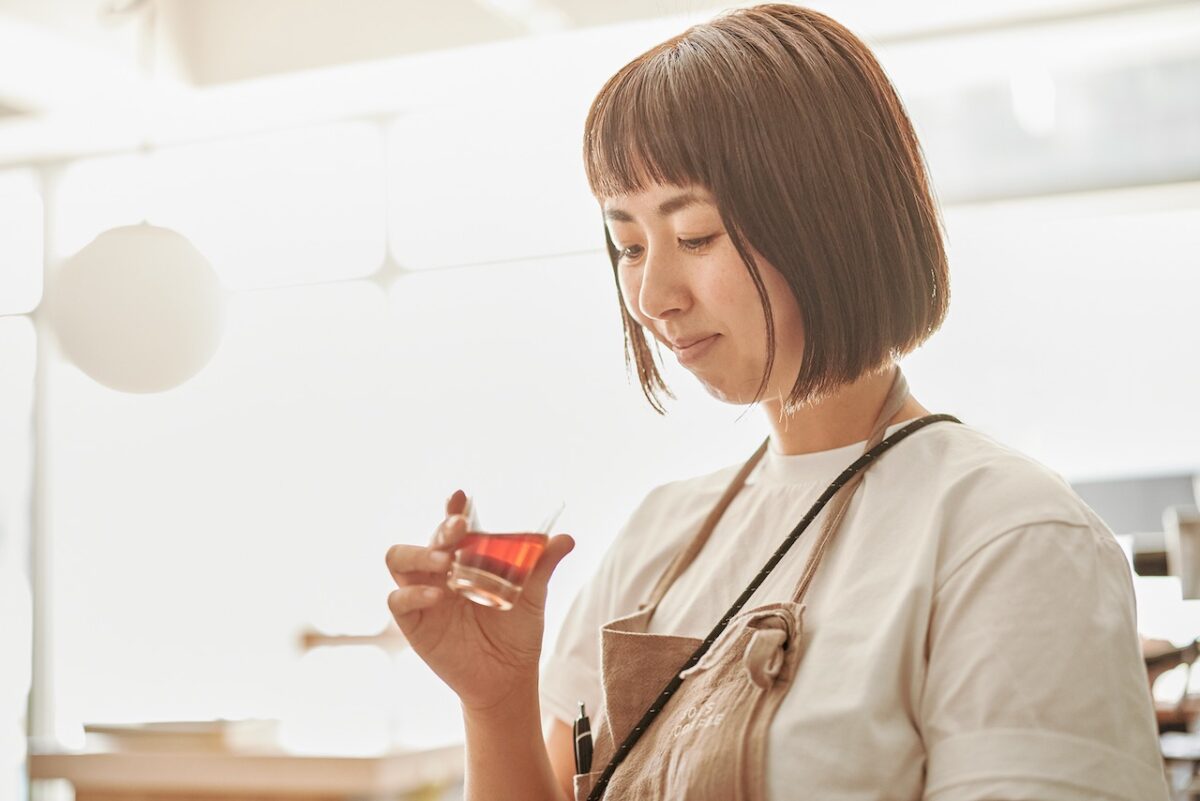
Here, there was a strange coincidence. Her friend’s father had begun research on coffee out of curiosity over whether the drink can be healthy.
The shock that the 14-year-old Arai felt in Australia – about drinking coffee to improve health – and her friend’s father’s pursuit of healthy coffee merged into one path. Arai and her friend had gone separate ways since. But because of this origin, SOL’S COFFEE still continues to serve coffee that is always gentle on the body.


Gentle-tasting coffee
“Can you imagine what a coffee that’s gentle on the body tastes like?” Arai asked.
It took just a sip to understand what she meant. Her coffee was well-rounded, mild and soft in the mouth, with lingering, elegant bitterness and a hint of sweetness seeping straight into my body. It had no trace of coarseness, and would in no way irritate my stomach: Gentle, it was.
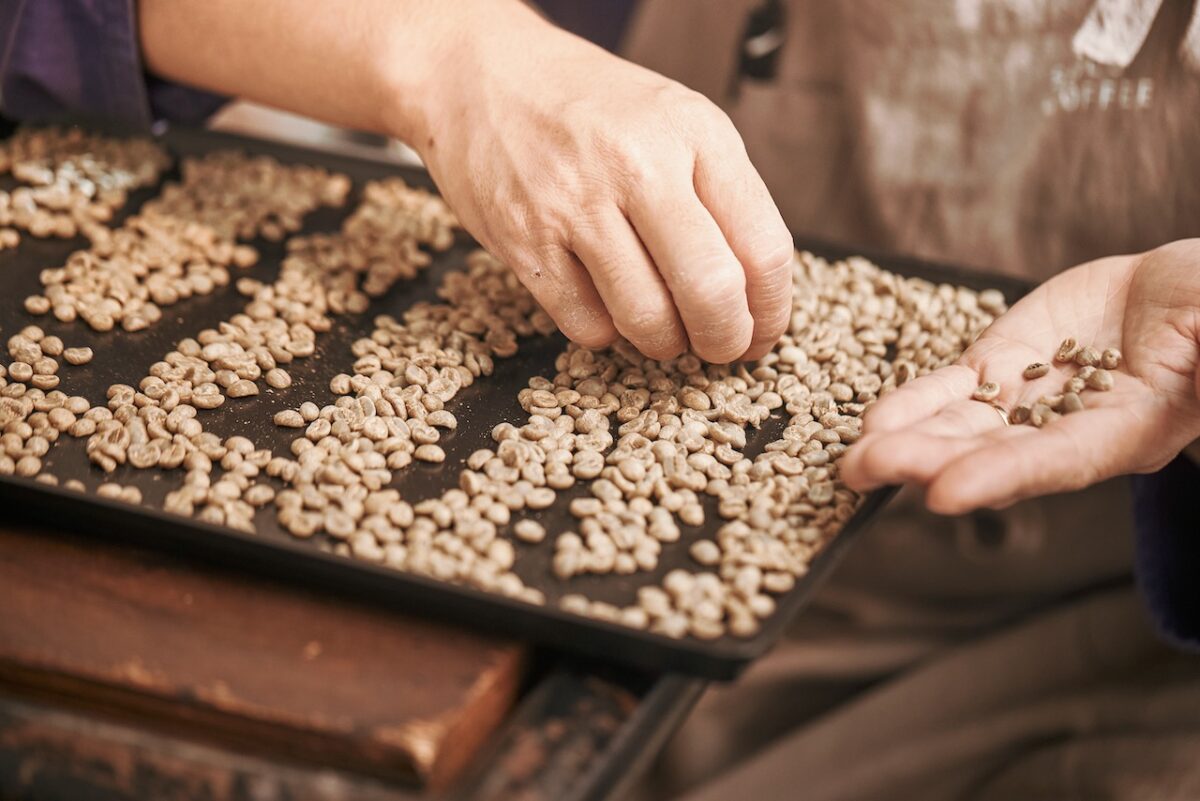
What is the secret behind this taste? Arai says the key is to pluck out defective beans by hand twice, before and after roasting, a routine she picked up from her friend’s father and has stuck by to this day.
“Just as it takes one bad orange to ruin a whole box of oranges, a single defective bean affects all 50 in the same bag. For coffee to be gentle, it has to be clear and easy to drink. So it is really important to carefully remove defective beans by hand.”

Arai also became aware of the importance of water thanks to her encounter with Wakasa Town, Fukui Prefecture, where she now operates SOL’S COFFEE LABORATORY. In Wakasa, there is a post town called Kumagawa-juku, where redevelopment was underway. And the business overseeing the project approached SOL’S COFFEE to open a branch there, expecting growing demand from foreign tourists. During one visit to the town, Arai tried brewing coffee with famed local water called “Uriwari water”, sourced from a nearby waterfall. To her surprise, the coffee turned out to be exceptionally delicious.
“Uriwari water is very soft and smooth, and brings out coffee’s unique characters” Arai says. “I’d studied many different ways of roasting and brewing. But I realized, ‘It is all about water, after all.’ I was fascinated by the idea of creating new tastes with this water. That’s why I decided to open a store in Wakasa and named it ‘LABORATORY.’”

But the Covid-19 pandemic threw a wrench into her initial plans, as there was little, if any, demand from travelers from abroad due to border restrictions. Still, Arai says business is going extremely well, thanks to local residents and domestic tourists.
Besides delicious coffee, a coffee shop needs “to be loved by local residents and become part of their lives,” Arai says. An event Arai organized at LABORATORY is a case in point. The event has since been taken over by local volunteers and has grown into a big hit among customers. LABORATORY has gained more and more regular patrons, proving that Arai’s hunch was right: Even in a tiny town like Wakasa, a coffee shop can be a draw and carve out a place of its own.

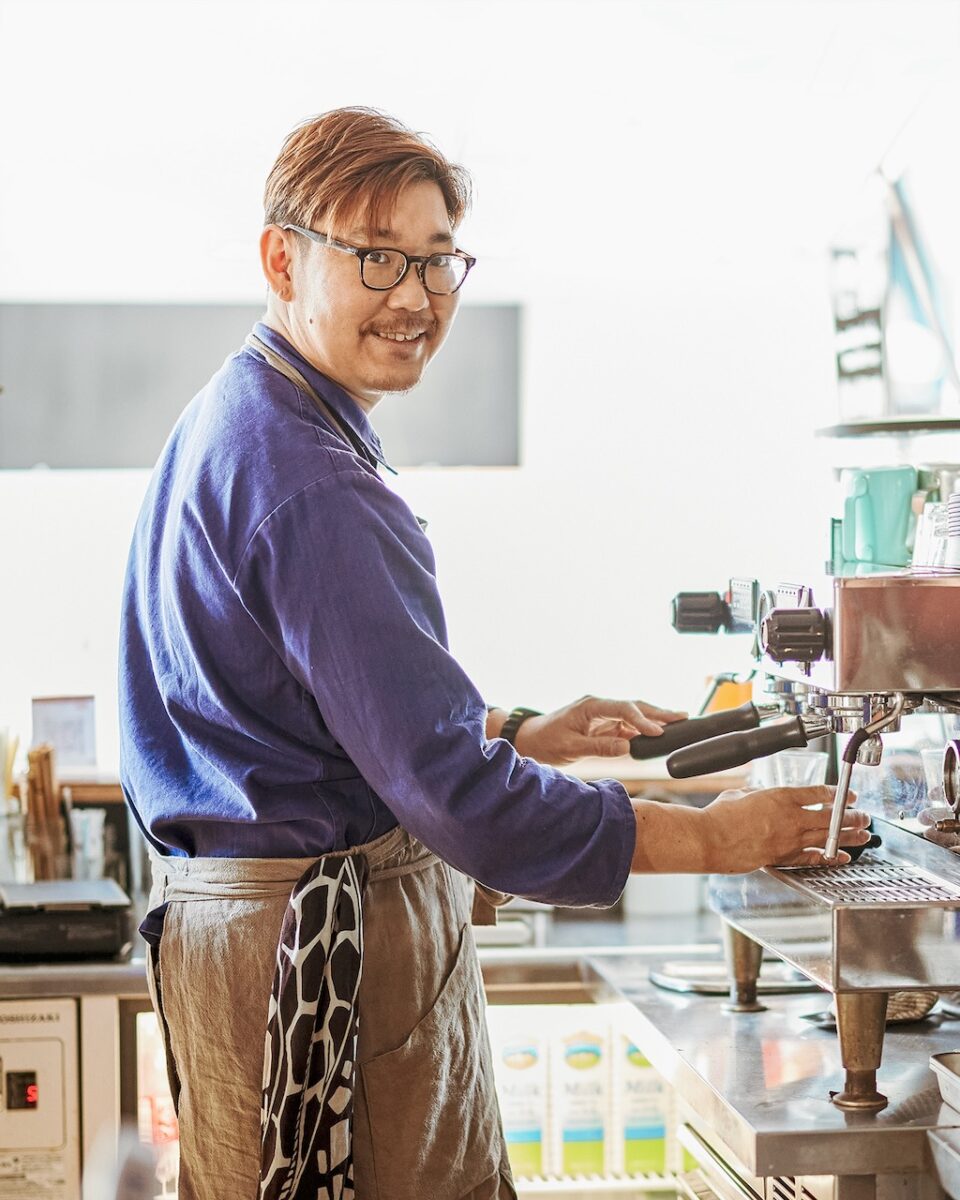
Serving ideal coffee
To be loved as a neighborhood coffee shop, Arai reminds all her staff that SOL’S COFFEE’s mission is to offer customers their ideal cup of coffee through serendipity. Asking customers what they like, how they feel and what they want is one of the ways Arai and her staff aim to achieve that mission. Taking cues from such conversations, they sometimes adjust brewing methods.
“Customers often ask for piping hot coffee. I never reject their request if that’s what they like. It is my job as a barista to use my skills and do all I can to serve a cup that makes them say ‘This is exactly what I wanted.’”
“According to conventional wisdom”, says Nakajima, who is in charge of store management and roasting, “too much heat spoils coffee’s flavors. I try to figure out what I can do to prevent that.” When I asked him what in particular he is mindful of when he roasts beans, his answer was rather nonchalant: “Not much.”
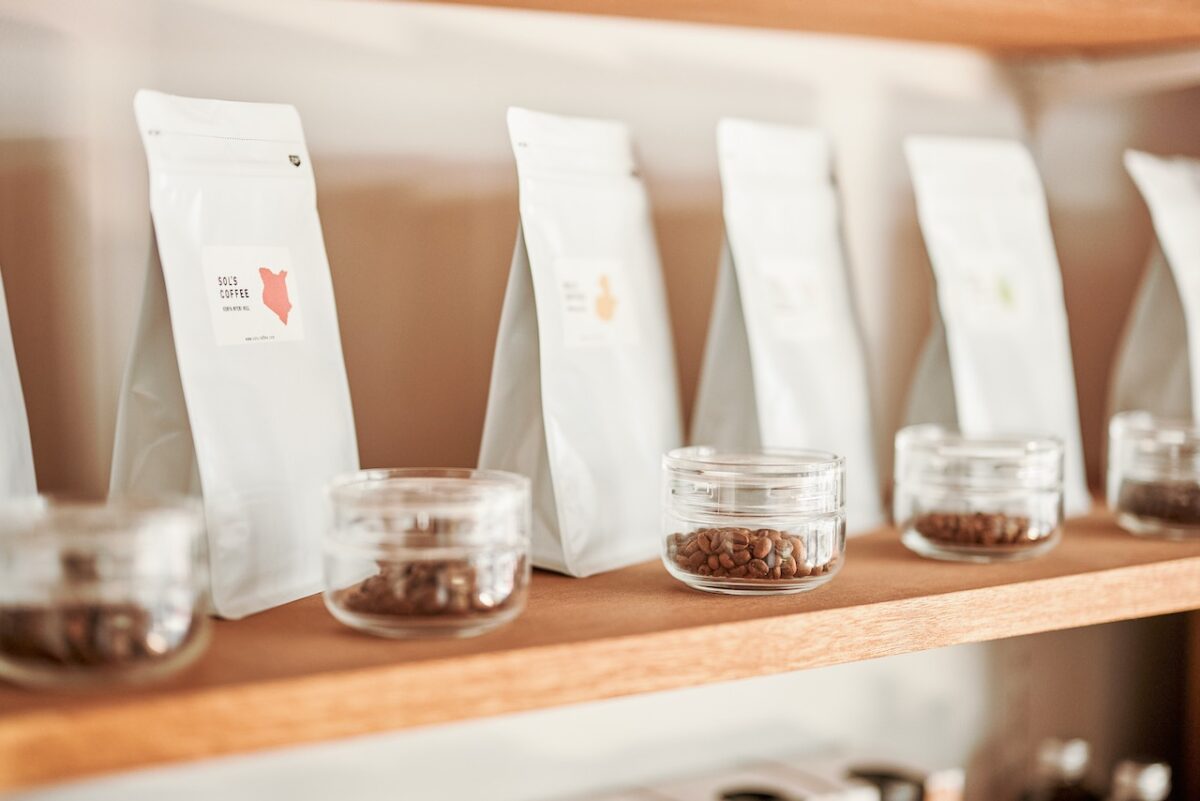
“Shops that specialize in coffee may not seem very approachable,” Nakajima continues. “To avoid becoming one of those shops, I’m mindful that I do not have too many rules and principles. With that said, I do pay attention to coffee beans’ potential and make sure that our coffee is gentle enough to be consumed every day. Not to mention that I strive to live up to customers’ expectations. But more importantly, I try to keep my mind open and this store accessible to a broad range of people. For instance, we use eight types of coffee beans nowadays at SOL’S COFFEE. We’ve arrived at these after trying to create tastes that meet our regular customers’ preferences and requests.”
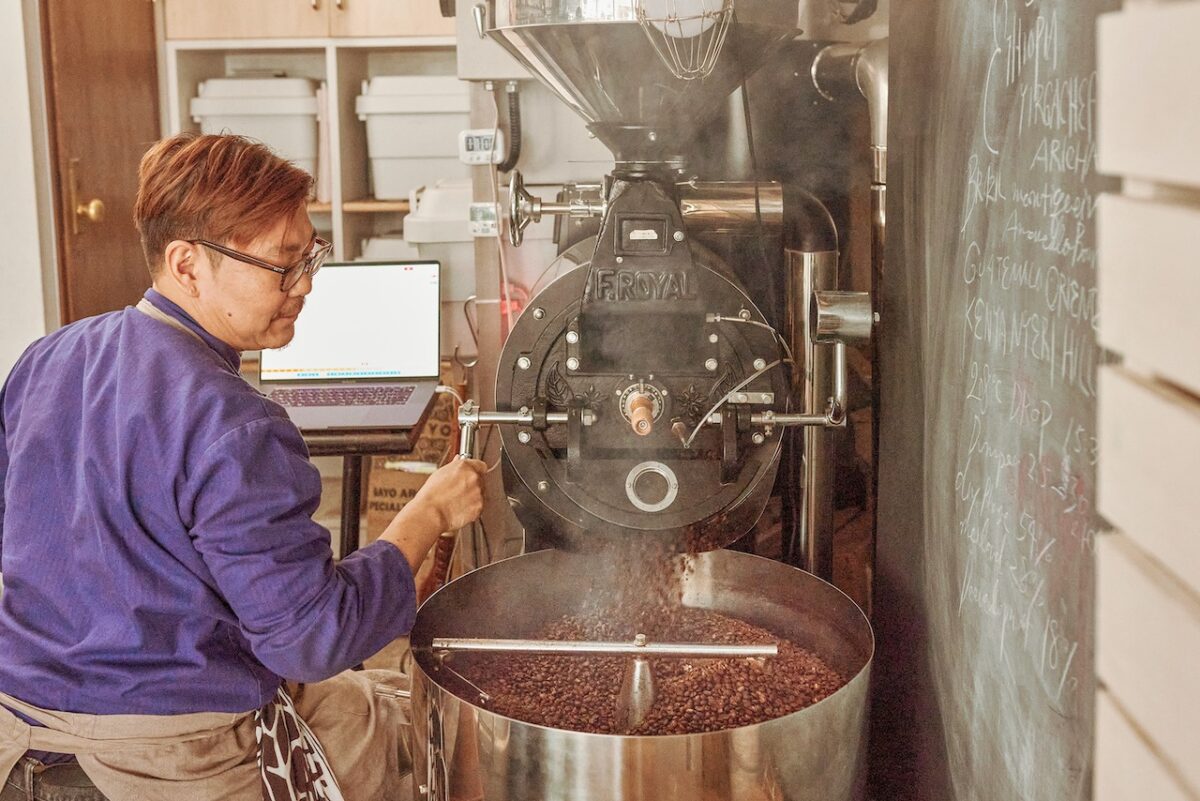
SOL’S COFFEE spares no effort in serving an ideal cup of coffee for each customer. That’s why it roasts beans in a way that affords body and richness to coffee, as often requested by regulars — an approach that seems incompatible with specialty coffee.
Nakajima explains. “It is believed that specialty coffee, when roasted to an excessive degree, loses its flavors and distinctive qualities. But we believe some types of coffee beans do retain flavors, no matter how they are roasted. And it’s our challenge to make those kinds of coffee.”
“Hold on. I sounded like I do follow some rigid rules, didn’t I?,” Nakajima laughed.
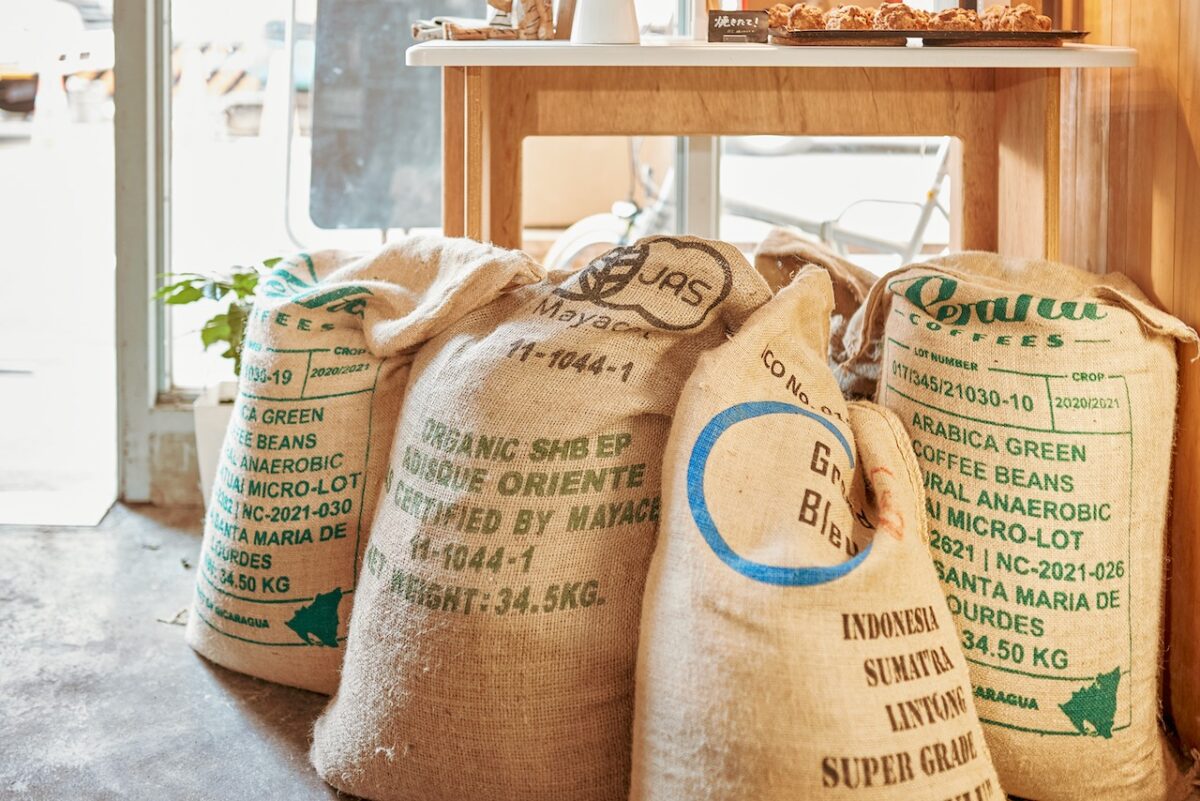
Giving birth to and raising two children mostly kept Arai out of the store in recent years. After Nakajima stepped in as store manager, Arai was”robbed of her job in a positive sense,” she says. Thanks to the reduced workload, she now has plenty of time to spare – a luxury she couldn’t afford since opening SOL’S COFFEE. And taking time off to visit coffee farms, her long-held dream, has increasingly become a real possibility.
Traveling had been one of Arai’s passions. Her work, she imagined, would take her to coffee farms all over the world, and that was one of the big motivating factors for running a coffee shop. In reality, though, after she started her own shop, Arai found herself too consumed with day-to-day operations to even think about visiting farms.
“When you are caught up in trying to just keep your store afloat, you start to become tunnel-visioned and run out of new knowledge and ideas to apply to your work. That’s why traveling is important for me. Now that I have some time on my hands, I want to visit various places and absorb many new things. I want to stay flexible and malleable to help my shops grow further. I also want to continue to take on new challenges.”
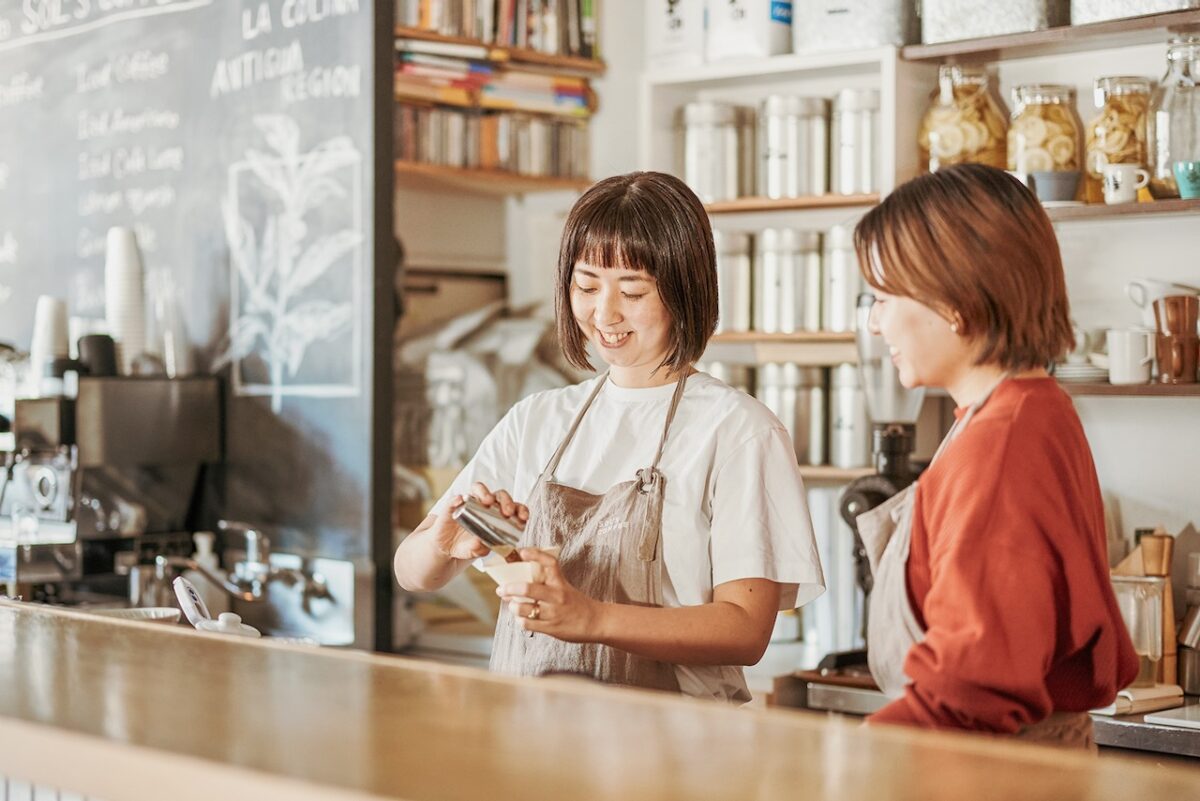
Twelve years after founding SOL’S COFFEE, Arai finally has enough mental space to venture out of the familiarity of her own world and explore the unknown. When Arai regains her free self, it will in turn drive her shops’ growth.
“This may be true for traveling, too. It is important to build personal relationships that help me gain new information from customers and staff in my daily life. We aim to be a store where all our staff can roast. We believe that goal helps create a workplace that is comfortable for workers and provides them with rewarding opportunities. I want my staff to focus on their strengths and not worry too much about weaknesses, just as long as they do what they are good at more than anyone else. Coffee is just a tool. It is important to use that tool to form warm ties with people at farms, those from outside Tokyo, staff and customers.”

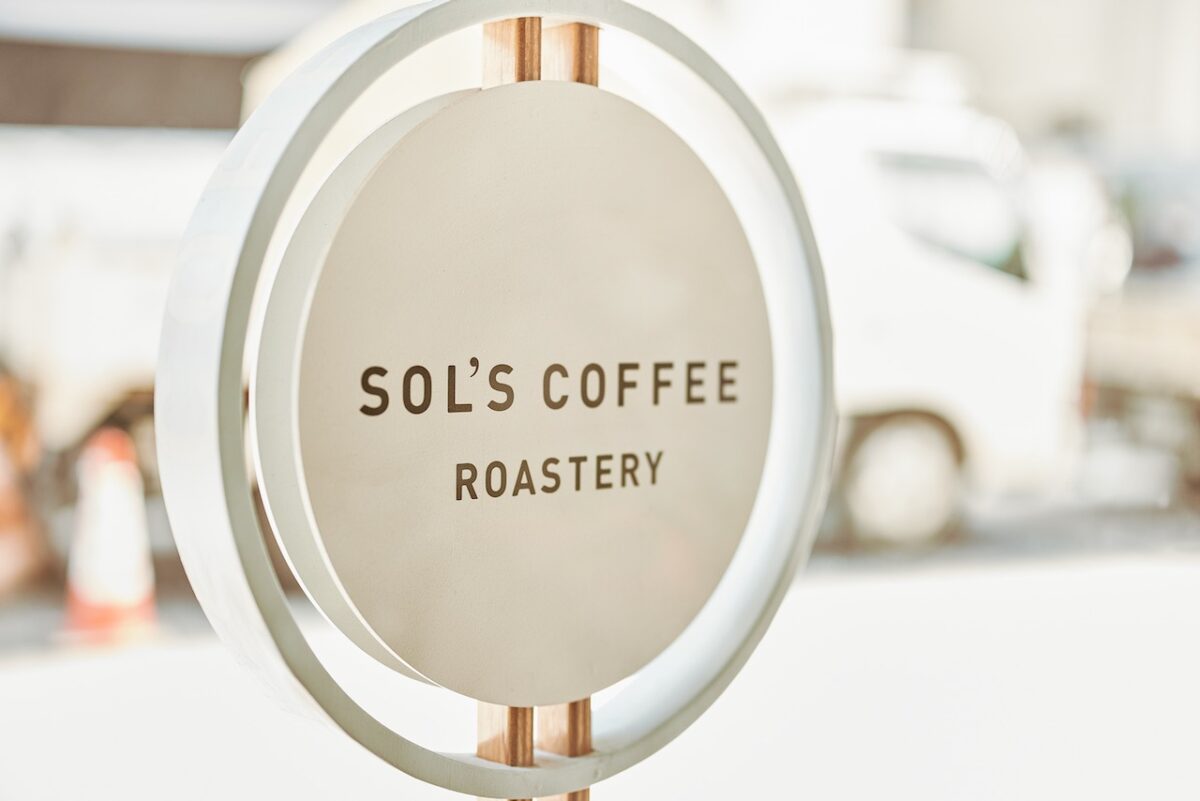
Serendipity is process of struggling
“SOL” is an acronym for “serendipity of life.” Arai learned the word “serendipity” in a movie she watched when she was a high schooler. But its meaning, the ability to find happiness in a coincidence, didn’t ring a bell at the time. So she has always tried to pin down what serendipity means. Arai says that it may be her life’s mission to find its meaning.
Though Arai says there is no single right answer to what serendipity is, I still asked her what she thinks serendipity is, after all these years of trying to capture its meaning.
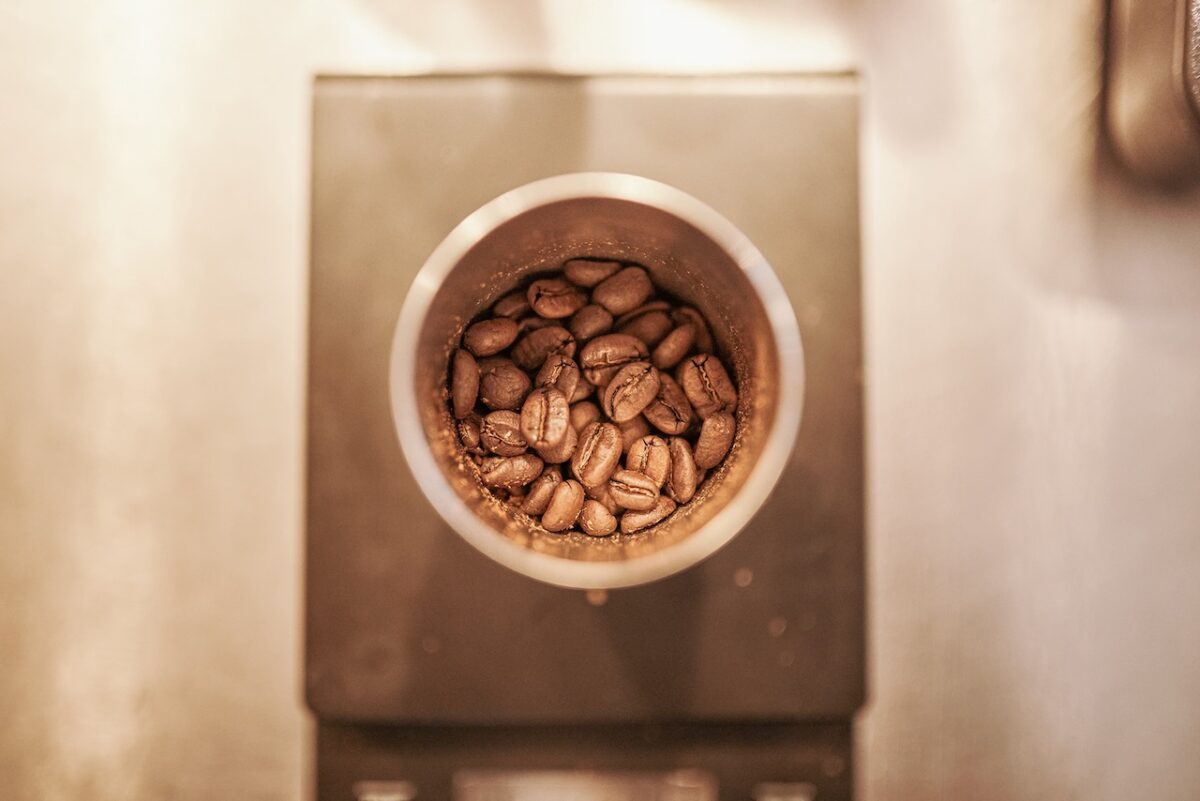
“Physicist Isaac Newton discovered gravity when he saw an apple fall from a tree precisely because he had studied gravity for a long time. Similarly, when I talk and write repeatedly about something I’m interested in doing, for some reason I meet someone who leads me to an answer.
These coincidences have led me to believe that the more effort I make, the more possibilities open up. And I think serendipity is that process of struggling. In other words, it is something you earn after putting in effort, rather than something that comes to you. Unless you keep an eye out for an answer, you won’t even be able to know an answer when you see one.”
“Actually, we’ve had such an incident recently,” Arai said, turning to Nakajima.
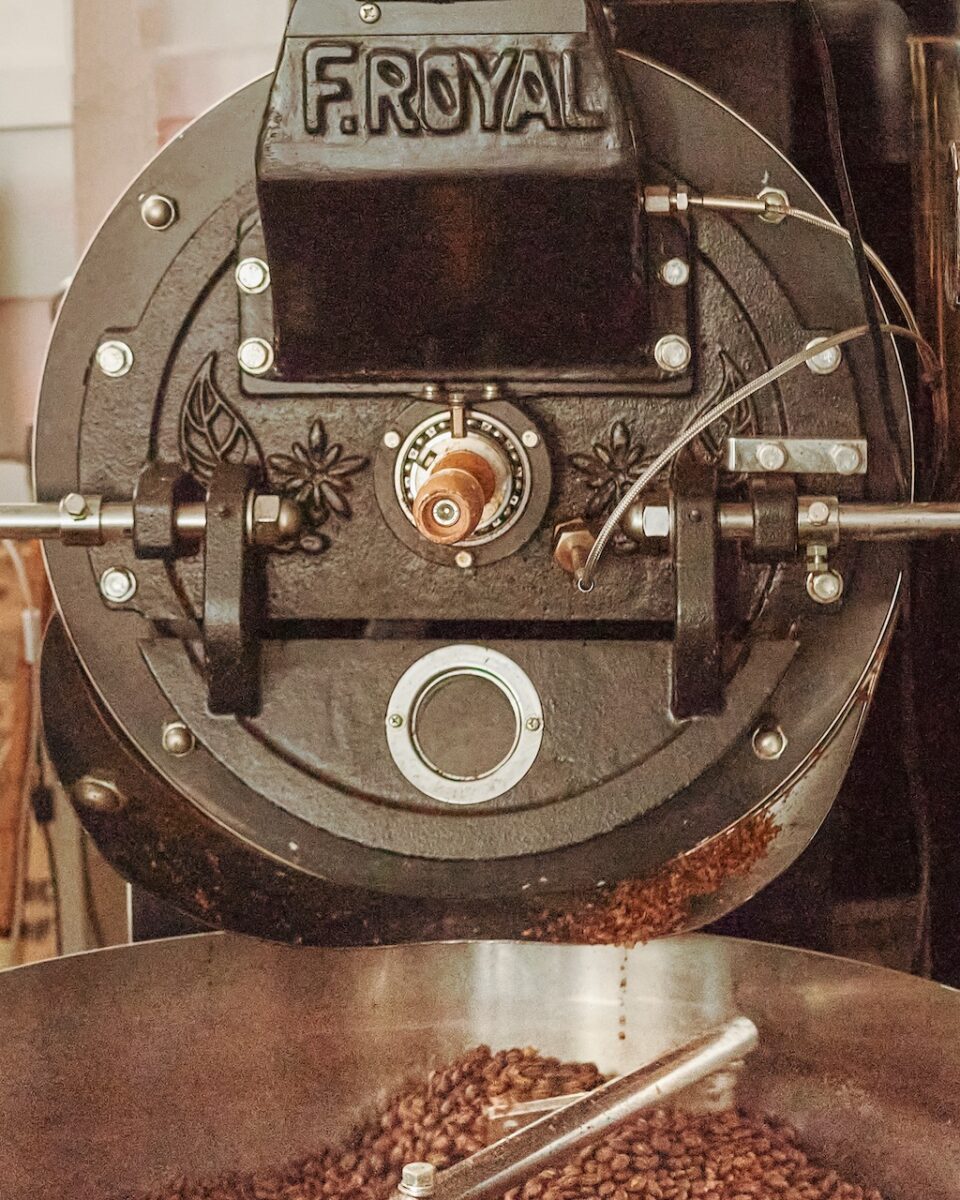
Dream unfulfilled, and revived
At the beginning of this year, Arai asked her father, a welder, if he could make a roaster by using Japanese welding techniques. But before the plan took concrete shape, her father died, leaving Arai with a twinge of regret and her dream unfulfilled. Recently, however, an unexpected turn of events set her dream back in motion.
“There is a craftsman who sets up and repairs roasters all over Japan,” Nakajima says. “We asked him the other day to repair ours. When we went to see him, he looked like the archetypal shitamachi craftsman. He had the look and aura so similar to my wife’s father that it was as if her father had been brought back to life.
We asked the craftsman to repair our roaster on our day off the following week. But he instead suggested the next day, saying that he would have to be hospitalized for cancer next week. All of us there, including our customers and staff, broke down in tears, because his words reminded us of her father.”
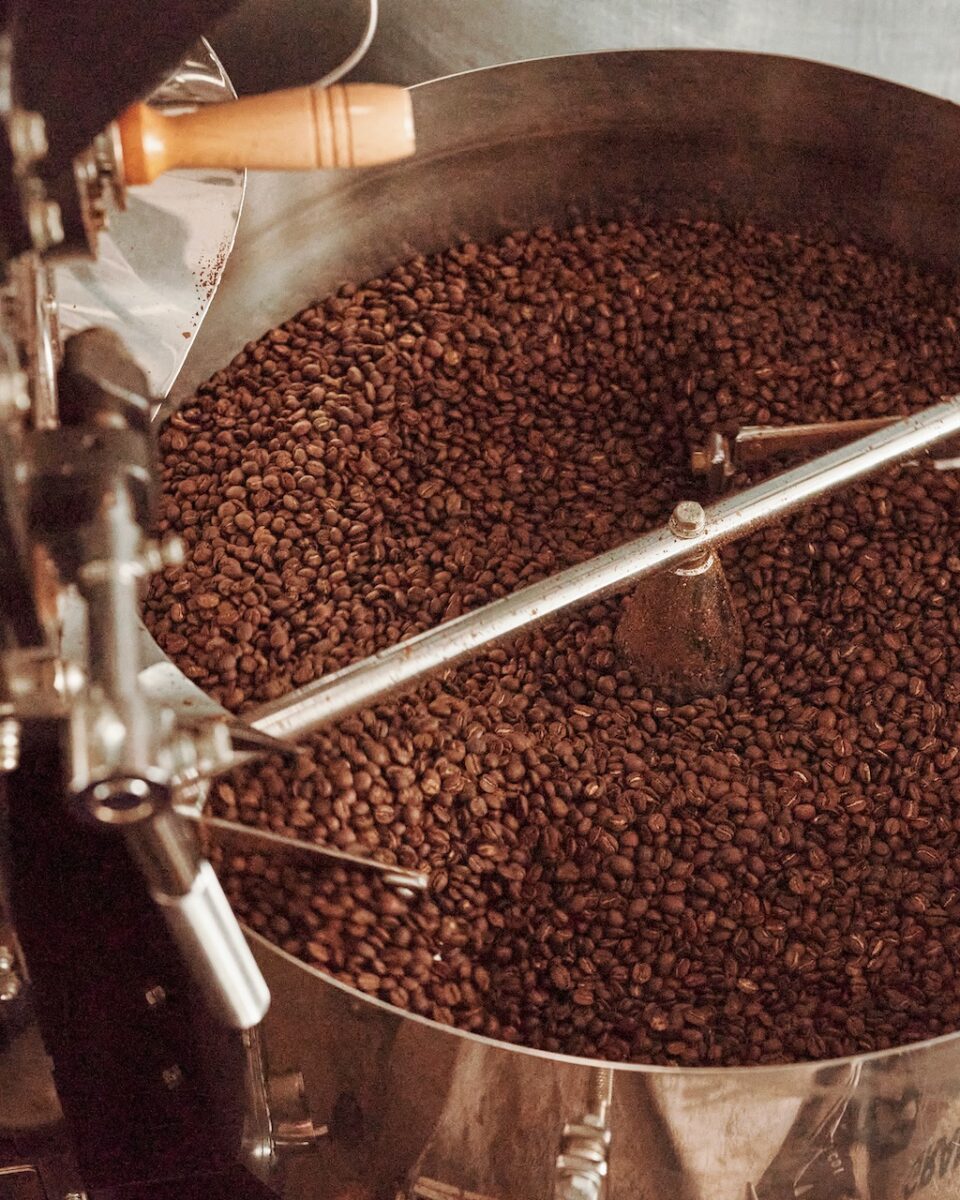
The craftsman had been working in full steam, trying to do maintenance work on roasters for stores across the country right until he was hospitalized. That was because he didn’t want to let his absence cause trouble to anyone. That devotion was “exactly the character my father had”, says Arai. Nakajima, meanwhile, saw an issue facing the current coffee industry.
“While jobs like baristas are glamorous, the coffee industry also needs craftsmen who maintain machines. But those craftsmen are facing a labor shortage so severe that if nothing is done to fix it, there will be no successors to pass on their skills. I felt a strong sense of crisis. That’s why we are once again planning to make a roaster ourselves.
That was the major serendipitous experience we had recently. It was revelatory and fateful. I think serendipity is about embracing such experiences.”
Arai chimed in, “I never imagined a day would come when my being a daughter of a welder would somehow become relevant in my path as a coffee shop owner. Everything in life has a purpose, indeed. It may seem irrational for a neighborhood coffee shop to make a roaster. But that is exactly who we are and what we do, finding chances and messages in front of our eyes and picking them up as we move forward.”
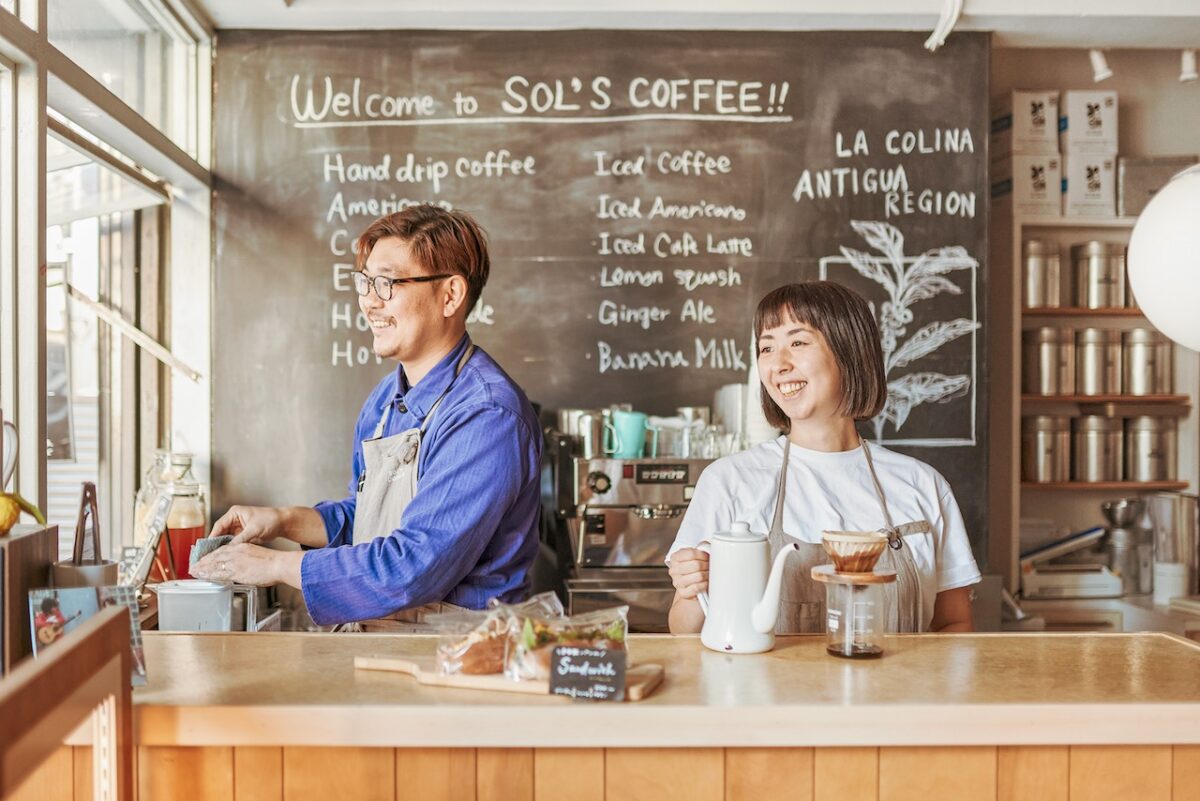
Both Arai and Nakajima have never let each new encounter and experience pass them by, instead carved them into their hearts. This is how they have overcome their arduous searches for an answer. Their uncompromising effort and straightforward outlook on the world have resonated with many people in their daily lives, and brought them many serendipitous experiences. I look forward to the day when their roaster is completed.
Originally written by Yuki Hirakawa
Photos by Kenichi Aikawa
MY FAVORITE COFFEE
Arai: I like the first coffee of the day I drink at the store every morning, a lot of morning sunlight shining through the window and just the right tune of music playing. That time of day, when I wait and watch as my husband brews coffee slowly and carefully, helps me turn my mental switch back on, readying myself for another day of hard work.
Nakajima: When I played in a band, my nights out often lasted till the morning. And I would come to SOL’S COFFEE ROASTERY just after it opened. I will never forget how delicious that espresso was, my first cup of the day, served through this small counter window. Perhaps because of that experience, my favorite coffee is still the first espresso I drink in the morning.

SOL'S COFFE
ROASTERY
- [Open]
- Weekday: 8:00-17:00 / Weekend, Holiday: 9:00-18:00